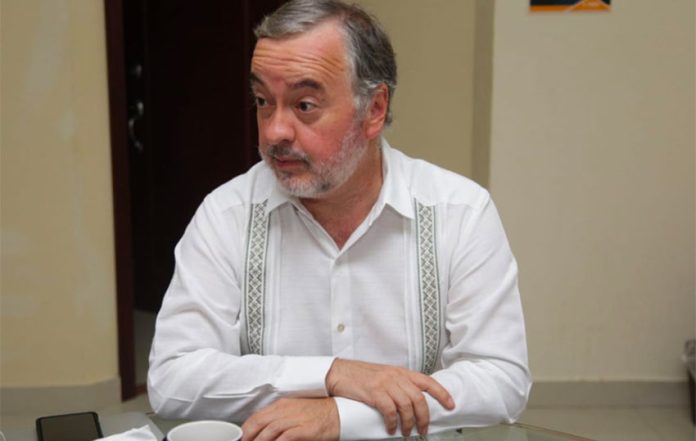The global outbreak of the new coronavirus Covid-19 poses the biggest challenge to tourism since World War II, according to experts at Mexico City’s Anáhuac University.
In a report published Friday, academics with the university’s Center of Research and Tourism Competitiveness (Cicotur) said that the global tourism industry could take its biggest financial hit since the 1939-45 war as a result of the Covid-19 pandemic.
The Mexican tourism industry will not be immune from the situation, the academics said, predicting that the initial financial cost of a downturn in visitor numbers will be 1-5% of tourism GDP. The tourism industry in Mexico, the seventh most visited country in the world in 2018, contributes 8.7% of total GDP, Tourism Minister Miguel Torruco said in January.
Francisco Madrid, Cicotur director and a former deputy tourism minister, said that the current “emergency” the world is going through due to the global outbreak of Covid-19 is of “enormous proportions.”
In light of the situation, Cicotur urged the government to develop a plan that supports the tourism industry now and into the future. All of Mexico’s tourism companies “will suffer [economic] damage to a greater or lesser extent due to the pandemic,” the report said.
“But without a doubt, airlines will face greater challenges. Therefore … they will require extraordinary support.”
A significant percentage of the revenue generated by the DNR tourist tax that foreigners pay when entering Mexico by air should be used for tourism marketing in the months after the Covid-19 health crisis subsides, the research center academics said.
They also said that Mexico’s tourism destinations need to improve their capacity to provide timely and accurate online information to potential tourists about the local Covid-19 situation.
In the face of an inevitable downturn in visitor numbers in the coming weeks and months, tourism-oriented companies must do all they can to preserve the jobs of their employees, the academics added.
The head of the World Travel and Tourism Council said this week that the coronavirus could cost up to 50 million jobs worldwide. Gloria Guevara, a former Mexican tourism minister, said the outbreak “presents a significant threat” to the industry. Council figures suggest the travel sector could shrink up to 25% this year.
The publication of the Cicotur report comes as Mexico braces for a likely widespread outbreak of Covid-19, which had sickened almost 133,000 people around the world as of Friday and killed close to 5,000.
There were 26 confirmed cases of coronavirus in Mexico as of Friday, a 117% increase compared to Wednesday, when there were 12 cases.
Deputy Health Minister Hugo López-Gatell said Thursday that community transmission could occur within 15 days, and acknowledged Friday that it is very probable that there will be hundreds of cases in Mexico at the least.
Source: El Universal (sp)
